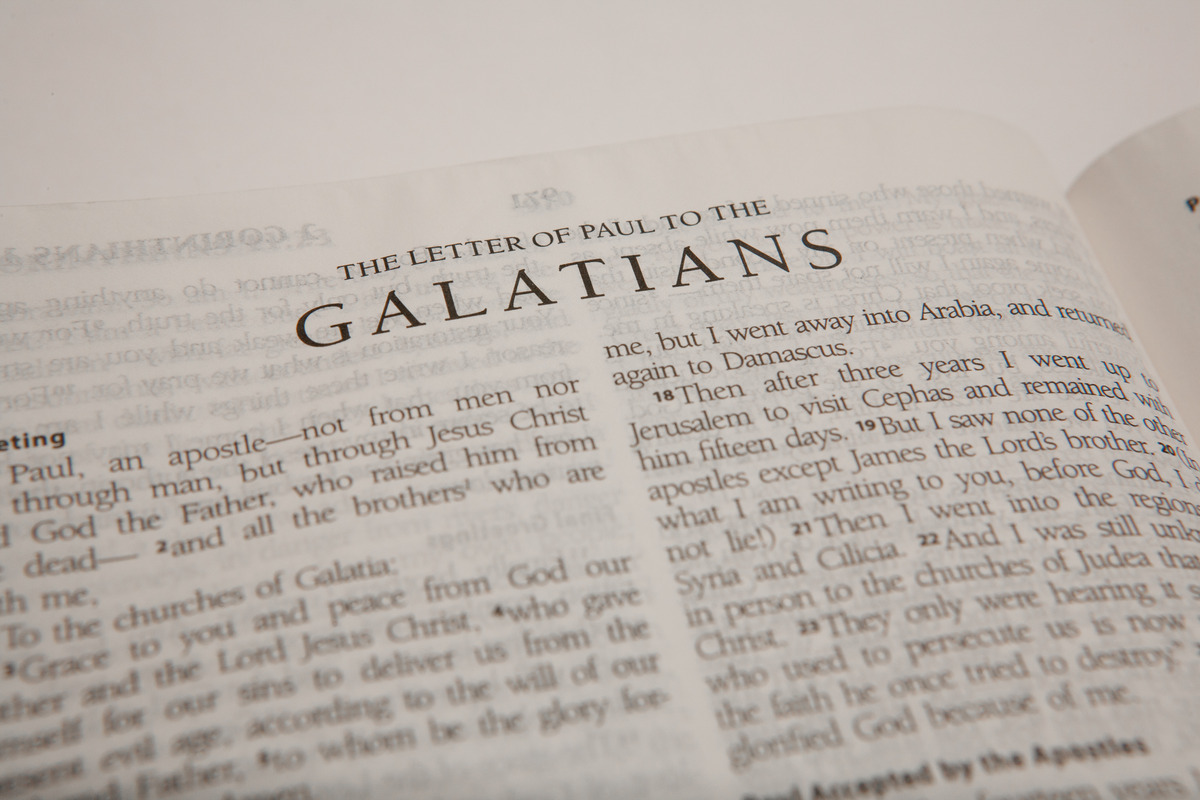"Through Love Serve One Another" -- Galatians 5:7-15
 Tuesday, January 15, 2019 at 07:58AM
Tuesday, January 15, 2019 at 07:58AM 
The Tenth in a Series of Sermons on Galatians
Christ has set us free, which is why Paul exhorts the Galatians to stand firm in the face of those who seek to re-enslave them to the basic principles of the world. The freedom purchased for us (at the cost of the blood and sweat of Jesus) is a precious gift, and is therefore not to be wasted by indulging the sins of the flesh. Our freedom is to be manifest in love and service of our neighbors. For Paul, the choice is clear. Either we place our trust in the cross of Jesus Christ to find freedom–though it be a stumbling block to Jews and foolishness to Greeks–or else we fall prey to the Judaizers who would abolish the offence of the cross in order to preach a false gospel of human merit, enslaving us under the guise of restraining human sinfulness and earning favor with God.
In Galatians 5:1, Paul’s emphasis begins to shift to more practical matters–specifically the nature of the Christian life. Paul opens with an emphatic assertion; the purpose of the death of Jesus was to set believers free from the elementary principles of the world. Christ’s merits provide us with what we need to be found “right” before God (“justified”). To add the merit of human works (the basic principles of the world) to the merit earned for us by Christ is an affront to God. Our liberty in Christ is the basis for the Christian life because, as Christians, we have clean consciences before God because the guilt of our sin has been washed away by the blood of Christ. Since we are now in Christ, we are not bound by the Law as a means of earning a right standing with God. Once justified, we are free to obey the Law of God since we are no longer slaves to sin. This freedom is the basis for the Christian life.
Christian liberty ensures that we are no longer bound by “things indifferent”– those things which are not expressly prohibited in Holy Scripture, summed up in the prohibitions, “do not taste,” “do not handle,” “do not touch” (cf. Colossians 2:20-23). All those who have a right standing before God through faith in Christ are free from the elemental things which once enslaved us. Unless we are clear about this, we will not be clear about how to live the Christian life. The Judaizers in Galatia were having much success because they caused great confusion about the gospel, deceiving people to return them to slavery.
Given the fact that Christ died to set Christians free from the very things to which the Judaizers were trying to re-enslave them, Paul exhorts the Galatians, both at the beginning and end of this section, to stand firm against these false teachers, and not allow themselves to again bear the “yoke of slavery” (likely a Rabbinic phrase for obedience to the law of Moses). If anyone does return to law-keeping as a means of earning favor with God, Paul says, they will fall from grace and be severed from Christ (Gal. 5:4). This is no intermural debate. Paul tells us that justification produces freedom in Christ. Yet, the false gospel proclaimed by the Judaizers brings about slavery and bondage to the very things for which Christ died to free us. If we don’t resist them we’ll end up re-enslaved back to basic principles.
But Paul is no libertine as the Judaizers were falsely contending. You can just hear them telling the Galatians in Paul’s absence, “if Paul teaches that we are justified by faith alone and not by works, what place does that leave for good works?” “If people really believe Paul, they will live lives characterized by sin and self indulgence, not good works.” You can just imagine the Judaizers pointing out to everyone who will listen those immature individuals who use the gospel as an excuse to sin, as supposed proof that Paul’s gospel is dangerous. Paul does not take the bait. Instead, he preaches the gospel of free grace, justification by faith alone, and Christian liberty louder and longer. This epistle is proof.
The problem is not that the gospel leads to license, but that those who live in such fashion do not understand, or (in certain cases) truly do not believe the gospel. Paul’s doctrine is that the faith which justifies, is also a faith which works in love, not so that we can be justified, but because we are already justified. One who trusts in the merits of Christ is set free to strive to obey the Law of God. But the religion of the Judaizers, on the other hand, is a religion of fear, doubt, and slavery.
To read the rest of this sermon: Click Here


Reader Comments